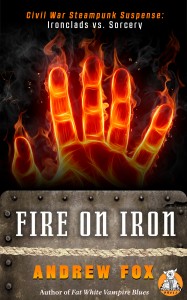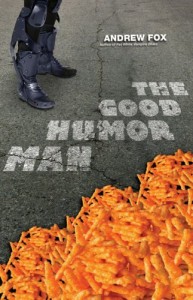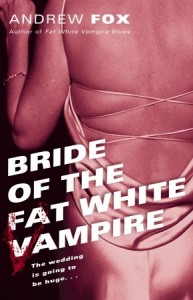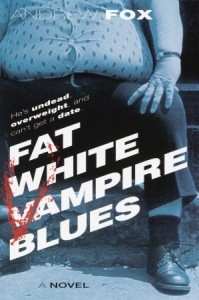I’d like to pose (and attempt to answer) four related questions. When is a relationship dead? When is a writer dead? When is an author dead? When is a book dead?
When is a relationship dead? When one of the two parties who formerly made up the relationship refuses to continue to relate. One party may continue to try. But with only one party making an effort, the relationship is dead.
I’m thinking about this very frequently nowadays. My relationships with my mother and my step-father are dead. They refuse to talk with me. When I was in the hospital for six days, they made no attempt to contact me, nor did they send a get-well card. They were not ignorant; my brother and sister filled them in regarding my distress and situation.
I recently received the news, through my sister, that my step-father is ailing. I asked my oldest son, Levi, if he would like to send his grandfather a get-well card, even though his grandfather no longer sends him letters, cards, or gifts. He said he wanted to send a get-well card, anyway, so I went out and bought one for him, put stamps on it, addressed it for him, and let him fill in the inside with a personal message. I also added a brief message of my own, very simple — “Dad, I hope you feel better soon. Love, Andy.”
By servicing the dead, one services the living. I was servicing the dead, and I was teaching my son to do the same. When we visit a gravestone and place flowers by it (or small pebbles from home, as is a common Jewish custom), we are servicing the dead, but in truth, we are servicing the living — ourselves. We are preserving a sense of connection with the departed and remembering the loving times we spent together. My step-father is dead to me. But by sending him a card with a brief message, I am recalling the years of love we shared, before he decided to cut off our relationship. I am also teaching my son that sometimes it is good and proper to take the effort to send someone something of yourself, even if you cannot expect any response in return.
A writer is no more than a person who writes. The only relationship necessary for writership is that between a writer and his or her work. When is a writer dead? A writer is dead when the person who writes dies.
An author is a writer who has an audience other than him or herself; the audience can be as small as one other person. Authorship is a type of relationship, a three-way relationship: the relationship between the author and his work; the relationship between the author and his reader(s); and the relationship between the author’s work and the reader(s). When is an author dead? An author is dead when all three of those relationships are severed, and they may be severed when only one party in the relationship is failing to maintain the relationship. In the relationship between the author and his work, the author can renounce his work and stop writing. In the relationship between the author and his reader(s), either party can stop sustaining a relationship which has been built. In the relationship between an author’s work and its audience, either the work can go out of print and be discarded from all lending libraries (the work severs the relationship), or the audience can stop reading the work.
When is a book dead? Either when the book is no longer available to persons who might otherwise be its audience, or its existing and potential audiences stop reading it.
The new hybrid forms of writer-publisher and author-publisher means that fewer writers, authors, and books will die. The assurance of publication means a writer will likely continue to write and continue to have a relationship with his work. The availability of social media, blogs, and websites means that an author’s direct relationship with readers need not cease until the author’s death. And the invention of ebooks, which need never go out of print, mean that very few books of lasting worth will ever die, for they will always be available to the readers who are willing to search them out.
I used to be an author; I was a writer with an audience. Now, having lost the majority of my audience, I am once again a writer. But by starting my own small press and publishing my books as both ebooks and physical books, I am taking steps to achieve life after death for me as an author and for my books.






I think the (relatively) new, maturing ecosystem of self-publishing and digital books will do more to ensure the “immortality” of both authors and their work than anything else has and probably will. Even if you change the method by which people consume digital texts (say, ocular implants, for one SF-oriented example), the reader will still be consuming the original, written words, just as people who are reading Charles Dickens on tablets do today. I think it’s fair to say that digital texts are not something Dickens could have imagined in the mid 1800’s.
As we build-out our online presence at Ereading.com and eComicbooks.com, one of the things that is most exciting for us is the prospect of seeing older works made available through ebooks and/or print-on-demand. For newer writers or former midlist writers, their past and current work is reaching more people than many of them could have imagined or hoped for—again, thanks to the digital publishing revolution.
As the novelist Lee Goldberg has pointed out, it’s an exciting time to be a writer. If I’m concerned about anything, it’s the attitude of too many authors that Amazon has their best interests at heart, simply because the company is currently the 800-pound gorilla in bookselling. The history of publishing and bookselling makes it clear that those writers may be somewhat wrong-headed in embracing Amazon so wholeheartedly at the expense of other, growing markets.
In short, putting all your eggs into one basket and all that…
Richard Dean Starr
Ereading.com
Dear Richard, I just visited your site and find your planned business to be very exciting for indie authors like me and small indie presses such as MonstraCity Press. I see that you will be offering your own e-reader program which will be free for book reading customers to download. Does your business plan include a guide for independent writers to format their works for your new software, and will there be a charge for this service, or will it be free to authors as well as readers (like Kindle, Nook, and Smashwords)? Related, will you be collecting fees from authors/small presses solely in the form of a percentage of sales? IngramSpark collects both fees up front and a percentage of sales, but they offer entry into thousands of bookstores, which tends to make up for their higher fee structure. Do you see yourselves as more of an Amazon (books and ebooks) competitor or a Smashwords competitor? MonstraCity Press currently makes use of both Amazon Kindle/Createspace and Smashwords (and soon IngramSpark/Lighning Source) to print/e-format/distribute our books. We may be able to add your company, as well, as long as you are non-exclusive and your costs (if any) for authors/small presses are reasonable. Looking forward to reading your reply!
Hi, Andrew:
“I just visited your site and find your planned business to be very exciting for indie authors like me and small indie presses such as MonstraCity Press.”
I’m very glad to hear that! We believe that indie authors and small presses deserve to have their work exposed to the largest possible audience. To that end, Ereading.com® will have a special area with an emphasis on promoting not just indie authors and their work, but small presses and independent bookstores (our plan to help keep indie bookstores alive in the future digital and POD-dominated era is another topic altogether). Being able to do this through a social-betterment business model via our Read and Change the World™ Direction Donation and Select Grants Program is simply an added bonus for us.
“I see that you will be offering your own e-reader program which will be free for book reading customers to download.”
Yes, the product will be called PocketReader™ and it will be fully integrated with Ereading.com® and our forthcoming social network for readers, MyEreading.com™. When DRM is required by publishers or authors, we will utilize Adobe; whenever possible our content will not use DRM. Along with other retailers, we will be urging Adobe to create a more seamless and trouble-free DRM experience for readers.
“Does your business plan include a guide for independent writers to format their works for your new software, and will there be a charge for this service, or will it be free to authors as well as readers (like Kindle, Nook, and Smashwords)?”
“…will you be collecting fees from authors/small presses solely in the form of a percentage of sales?”
Here are the answers to two questions bundled together: the publishing aspect of Eread Technologies, Inc., will be called LaunchWords.com™ and is a wholly-owned subsidiary of our company. LaunchWords will collect royalties as a percentage of sales. There will be no up-front fees, and the formatting of books for digital and POD will be free to authors and publishers. Cover design will the responsibility of the author, although we will offer consulting and design services through LaunchWords.com™ on an as-requested basis. This is not to maximize profits in this area, but to ensure a higher-quality end-product whenever possible, at a price that essentially covers our cost of assisting the indie author through that specific area of the process. We believe offering this kind of affordable service package to writers will benefit us in the long-term by translating to retail profit on the titles sold and distributed through LaunchWords™. Hopefully it will encourage authors to also speak highly of LaunchWords.com™ and the product that we produce and distribute for them.
“IngramSpark collects both fees up front and a percentage of sales, but they offer entry into thousands of bookstores, which tends to make up for their higher fee structure.”
I believe traditional distributors are not necessarily the brick-and-mortar retailer’s friend. Others should probably expound more on this. That said, I believe that print publishing will eventually become virtually 100% POD. Top-selling titles will become higher-quality print books for people who prefer them or who collect print titles, and massive print runs (and expensive shipping, warehousing, and many other costs) will become largely obsolete. This is a long-term view not shared by everyone, and is often met by a degree of despair by some in the audience whenever I speak on this topic. There is a future for print books, even very nicely produced ones—I just believe that in the future they are going to be valued more as artifacts than actual, practical volumes that many of us read for pleasure. Please bear in mind that I’m primarily referring to fiction in this part of my response. Non-fiction becomes more complex an issue, for a variety of reasons, some obvious and some not so much. The latter holds true for digital comics as well. I believe the result of all this is that some brick-and-mortar bookstores will survive but be forced evolve into something else, which will probably involve almost always having a robust online presence while also selling new and used print books, too.
“Do you see yourselves as more of an Amazon (books and ebooks) competitor or a Smashwords competitor?”
Eread Technologies, Inc. has been “master-planned” to build-out in several phases over the next few years and provide a range of services at both the retail level (Ereading.com®, eComicBooks.com™, and MyEreading.com™) and the publishing and wholesale level (LaunchWords.com™ and eLibraryBooks.com™). So I’d say we’re on track to be a bit of all of those.
“MonstraCity Press currently makes use of both Amazon Kindle/Createspace and Smashwords (and soon IngramSpark/Lighning Source) to print/e-format/distribute our books. We may be able to add your company, as well, as long as you are non-exclusive and your costs (if any) for authors/small presses are reasonable. Looking forward to reading your reply!”
We’re looking forward to the opportunity to work with indie publishers like MonstraCity. If there are any fees for services, they will be competitive, if not lower, than anyone else in the industry. Our retail business plan is based upon volume, which is why our retail catalog will be comprised of more than 22 million new and used print and digital titles, with more added each month. Print books still pay the bills, in a sense, but we’re obviously true believers in digital technology and ebooks.
On a related note, I’ve personally been reading ebooks since about the year 2000, not long after Richard Curtis founded his company. I thought they were great then, and obviously still do. Oh, and your last point: we will be non-exclusive for authors. To me, this has been—and always should be—a red-flag for authors at Amazon. Surprisingly, many have embraced Amazon’s exclusivity requirements in exchange for a higher percentage of their sales. That may look good now, but the future may make them wish they had not been quite so accommodating of just one company. I suspect we will see Amazon take back some of that percentage down the road. But we shall see…
Thank you for your questions, I really appreciate your interest. Your original entry was thought-provoking and well worth reading!
Richard Dean Starr
Ereading.com
Part of Eread Technologies, Inc.
Richard, thank you so much for your lengthy, detailed, and very accommodating response! Ereading.com sounds like it will be a fabulous addition to the publishing and book-selling scene. I think many of us writers have been waiting for a true competitor for Amazon to emerge in the books space, if for nothing else, simply to help keep Amazon “honest” over time. Given what you have written here, as soon as Ereading.com’s sub-application, LaunchWords.com, is launched, Dara and I will begin making use of it. Do you have any estimate as to in what timeframe we can expect the PocketReader and LaunchWords.com sub-applications to go live? Or would this be considered confidential information at this point? Oh, just one more thing: I wanted to order myself a prospectus from Ereading.com in order to find out more about your company, and despite trying to input several differing email addresses, I kept receiving an error message, something about Email Monkey (I’m probably not remembering the wording exactly right). You might want to have someone check out that portion of your website; it would be somewhat embarrassing for an up-and-coming tech company to have a buggy website. Best of luck to you and your partners!